Google I/O unveils AI that will redefine the search experience
It’s finally here. At their highly anticipated I/O 2023 event, Google unveiled a new version of the SERP incorporating AI-powered search, Search Generative Experience (SGE) that will be rolled out in the coming months.
How will the new AI search suggest work?
Don’t look for changes at the basic functionality level. The new search still involves entering a query and receiving a response with links to websites, snippets of content and paid advertising.
In some situations, however, AI will gradually start displaying text at the top of the page is based on information found in various sources on the web and containing links to those websites.
Similar to what Bing is testing in its interface at the moment, when you type a keyword into Google, you’ll first see the answer generated by artificial intelligence.

The AI will also offer you topic extensions and groups of articles and content that it thinks best match the key topic.
Where yesterday Google delivered results based on a search term, today AI can make each search a complex topic and offer you relevant content or alternative products more efficiently than ever before.
Choosing the changes that will affect your customer journey
We have putlled together an overview of the changes that will have the biggest impact on e-commerce and B2B marketing. But definitely expect more. We are looking at a complete redesign, not just the cosmetic changes we know from past updates.
1. A new first page for desktop and mobile devices
This is what the new SGE-enabled search will look like in Google Chrome using desktop. You can see the AI conversation prompts immediately below the search bar. A similar feature can also be found in the mobile interface. In both cases, it will lead to a screen prompting you to start an SGE conversation.
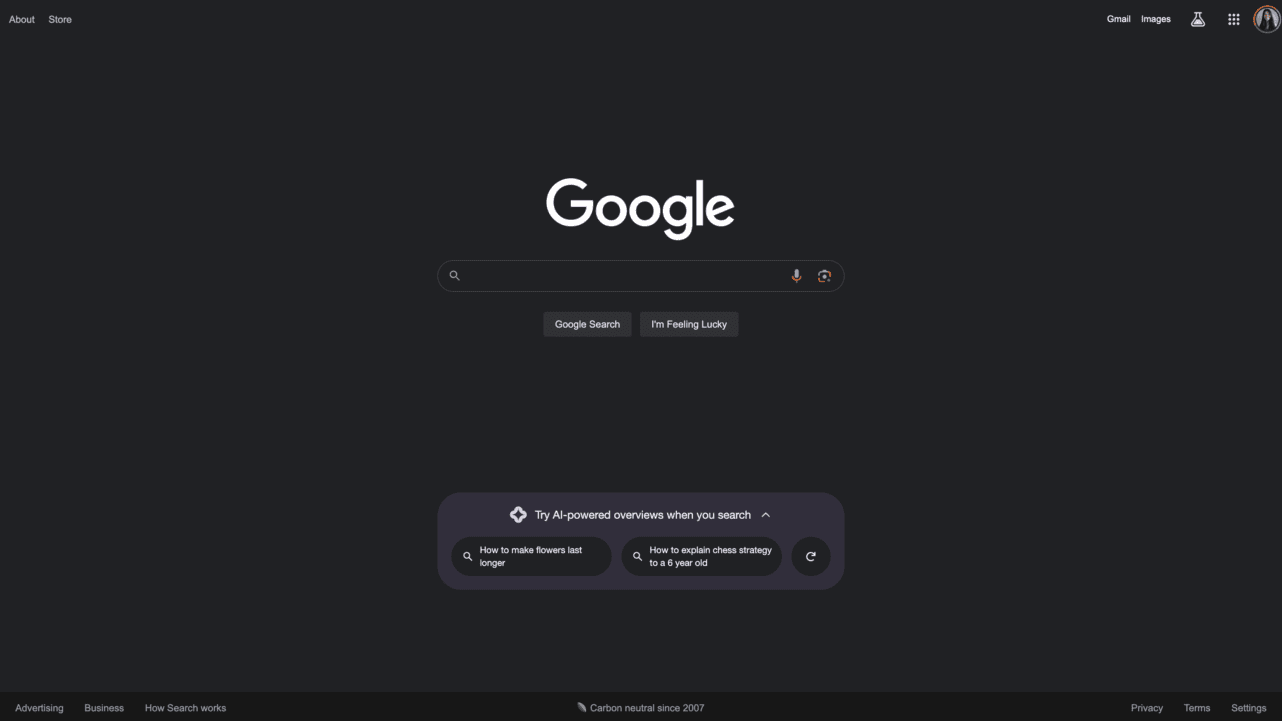
2. How will paid ads and featured snippets look?
You can expect major changes in content display, changes in rankings, new CTR standards, and initially adverse changes in the effectiveness of paid campaigns. The generative AI response from Google’s app will be similar, but you can expect AI content to push all positions lower.
CTR will be rebuilt from the groud up
Whether it’s organic traffic or paid advertising, a massive SERP redesign will have consequences. Due to AI generated content, organic results will fall to third place and search engine advertising and Google Shopping positions will fare equally.
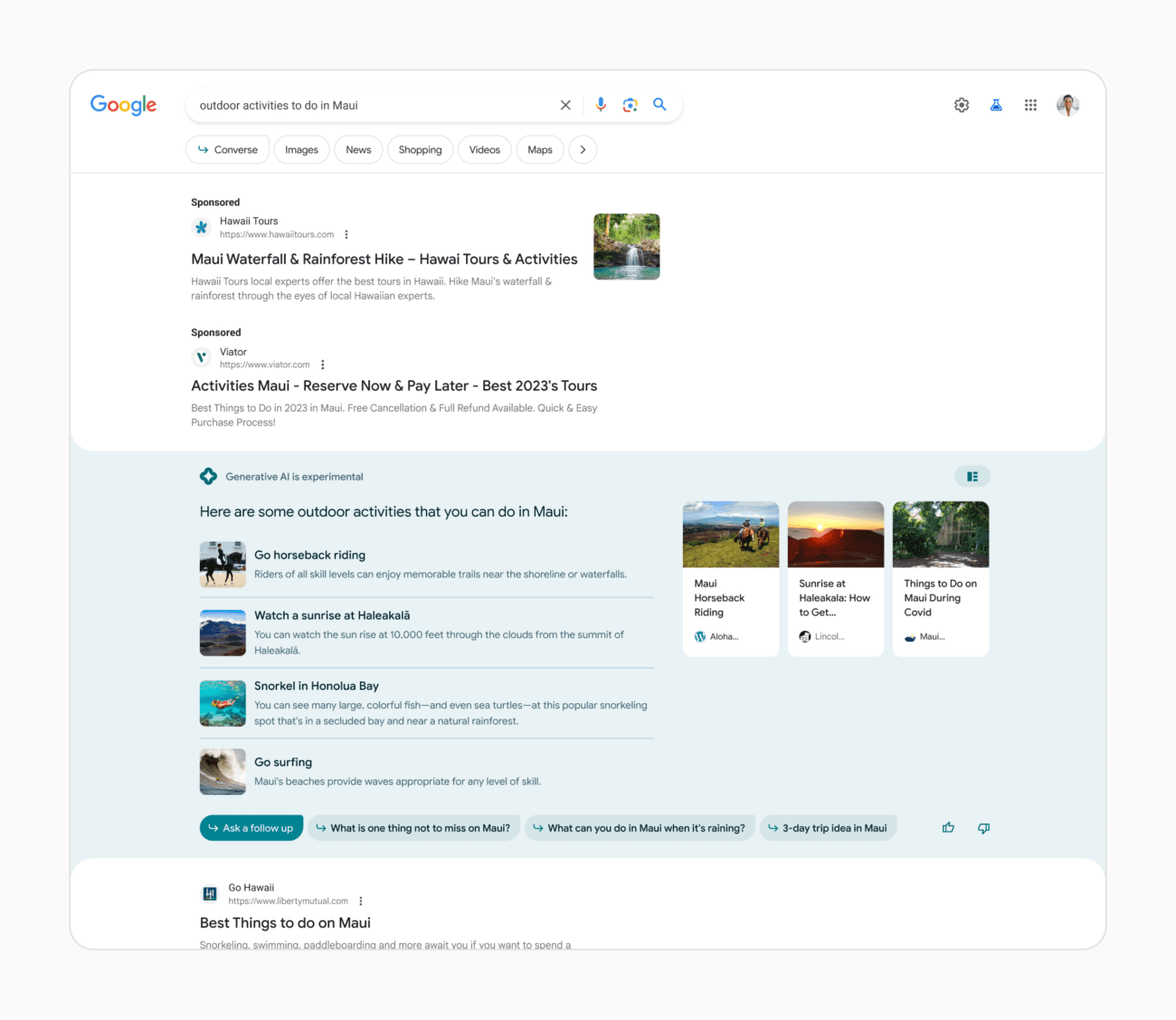
3. Local searches
This is where we expect the fewest changes (for the moment). In our test, the top three restaurants chosen by the generative AI were only slightly different to those displayed in the local package in the browser on the computer.
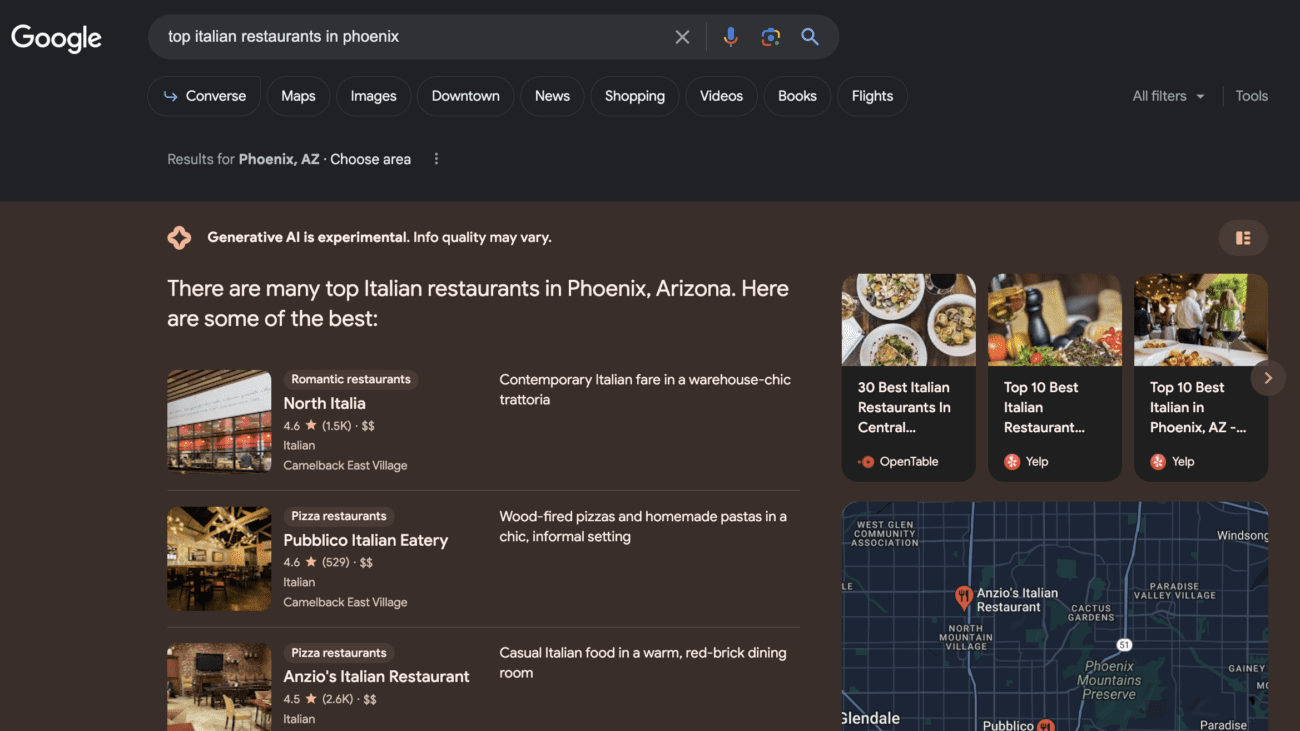
3. AI searches in FAQs, related results and the informative panel
In the Google SGE test, six sources were used to answer a question. Five of the six sources were from other publishers, with one being an official site directly by Google.
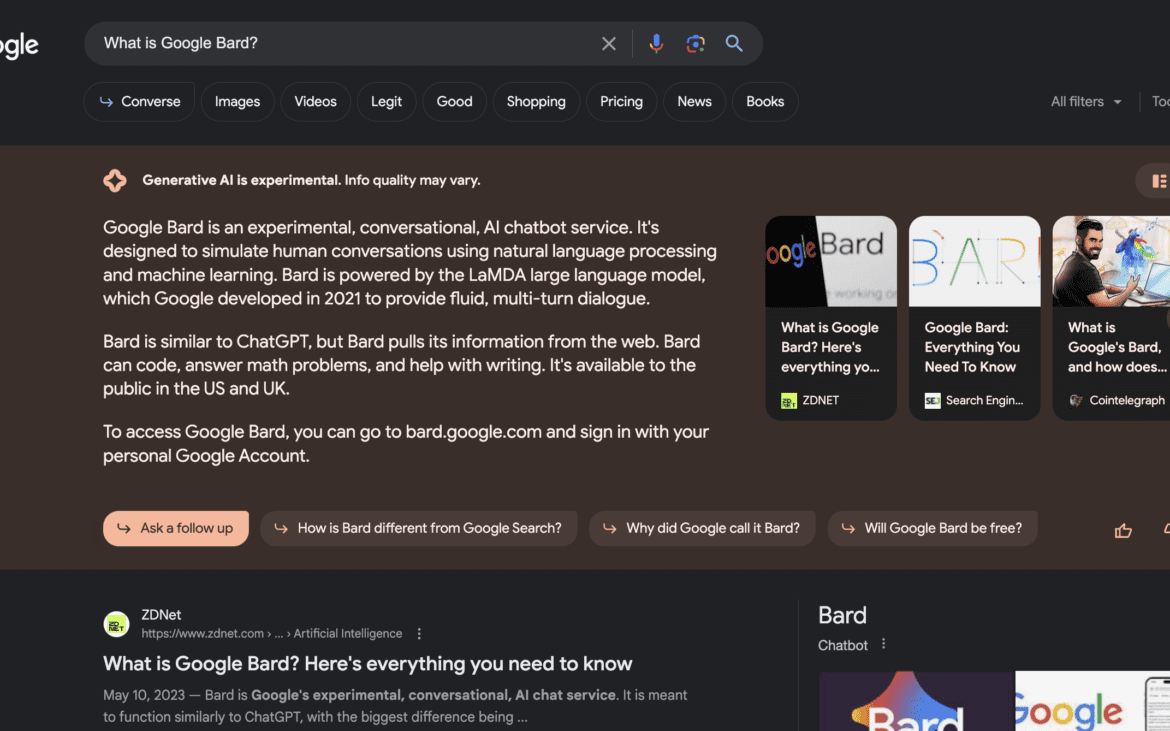
4. New Google Shopping, reviews and product details
Compared to a traditional search, SGE will generate hints and lots of product information before displaying organic search results. When you ask about a specific product feature, the new search can give you the exact details followed by reviews and the best purchase options.
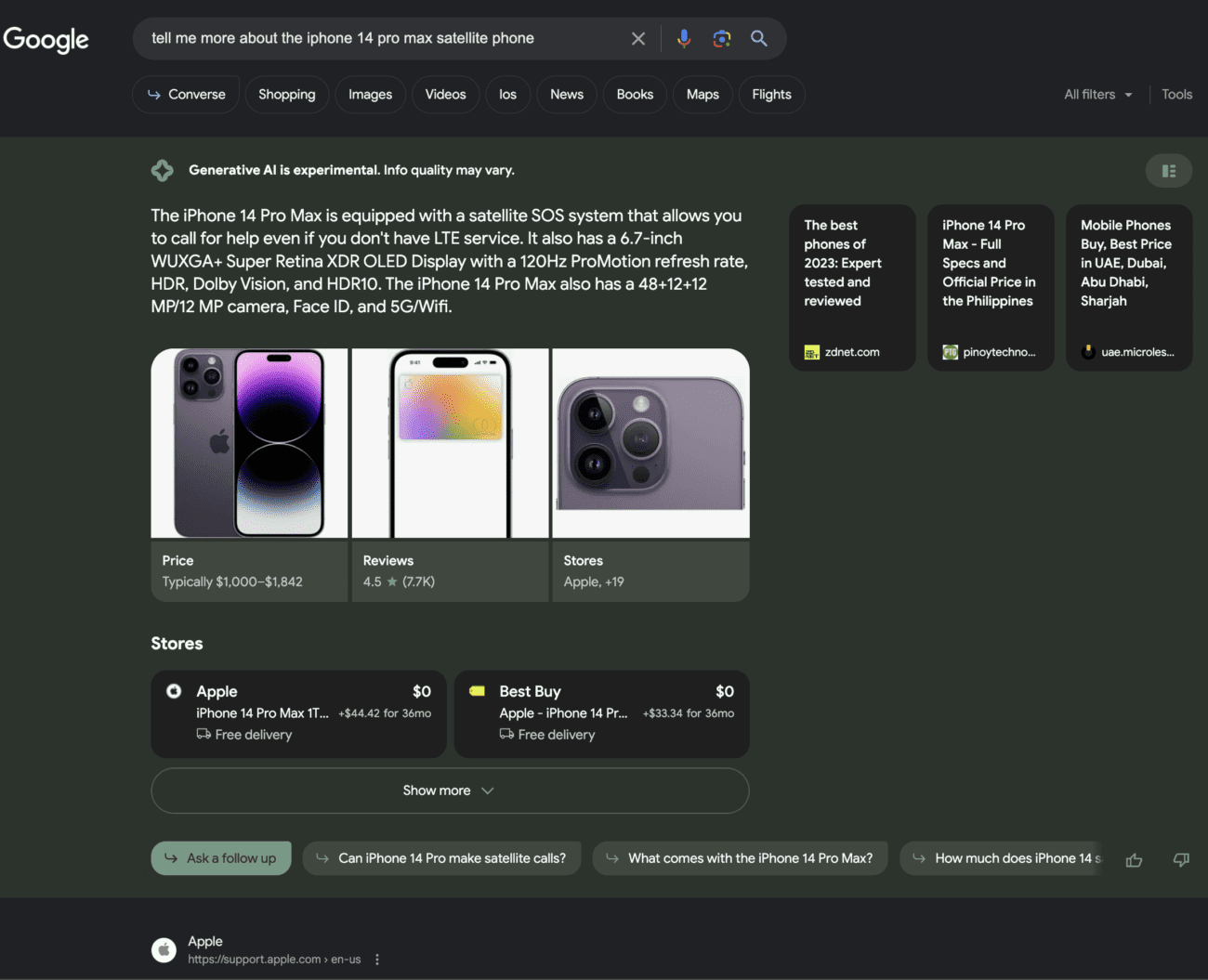
SEO changes the rules of the game
In terms of content creation or search engine optimisation itself, the long-term impact will certainly not pass us by.
The SERP changes have alrady made the competition fierce, and with the new search AI interface, it’s going to be even fiercer. Companies will create more content and compete for increasingly limited positions.
How will search and keywords themselves change?
If you watched Google I/O, you probably saw that their new AI (BARD) allows for more natural, extremely specific queries compared to the traditional keyword or query snippets we see today.
We expect improvements especially when it comes to hyper-specific keywords (long-long-long-tail).
Google will now be even better at figuring out actual intent. Not just based on what “keywords” you use. Our academic view is that keyword research will evolve to suit the new rules, just like everything else.
Diversify, distribute, socialise
Diversifying your content strategy and distributing content through other platforms that show up in search such as LinkedIn, Twitter and YouTube will be key.
Brand collaborations, content from your customers and PR collaborations will also gain in value. The gap between SEO as a performance channel and a brand awareness channel will gradually close.
Strategic content mix
If you want to diversify your content mix in search, don’t put off SEO any longer. It is thanks to AI that SERP is becoming a key collaborative space, where all relevant content will come together.
You can also expect Google to implement additional social and creative content. This will add a whole new dimension to your brand search results.
Do you need help?
Do you have an online store with a quality product, but feel that sales could be higher? Maybe the problem is in the marketing strategy or even in the targeting of the campaigns.
If you can’t seem to make it work, contact us and we will be happy to help.






